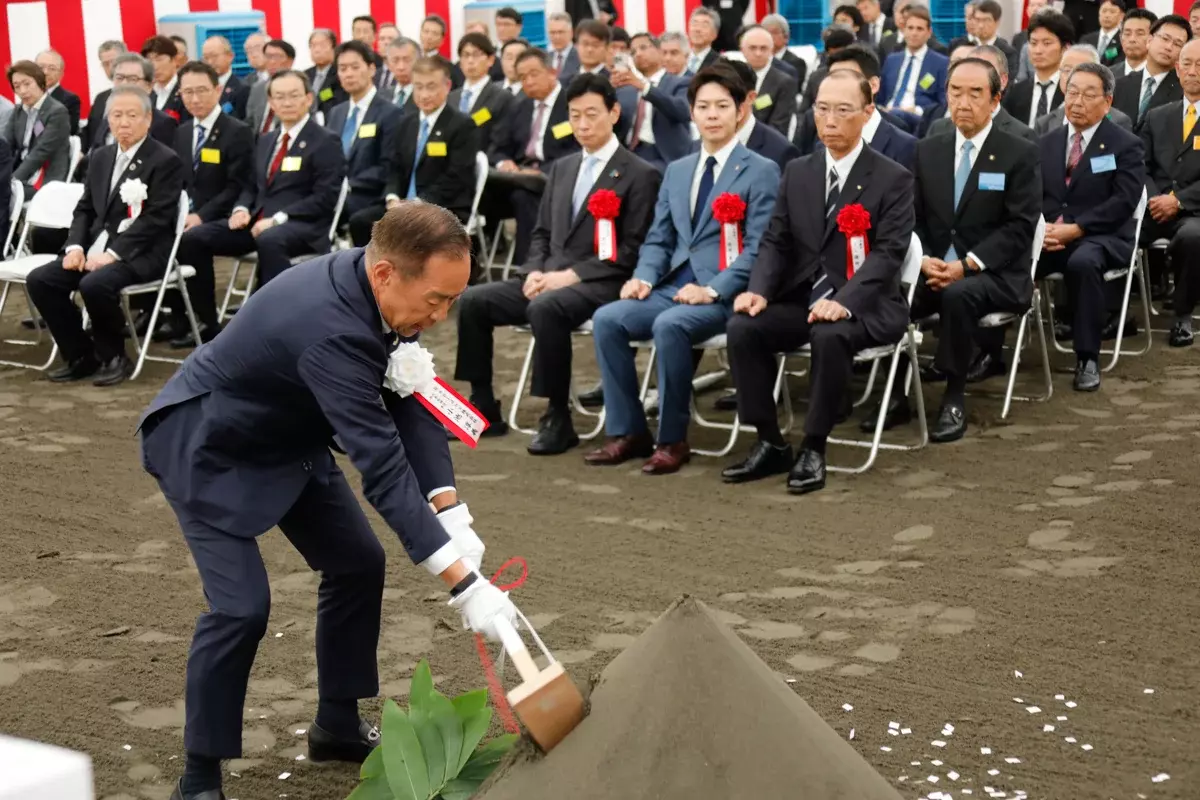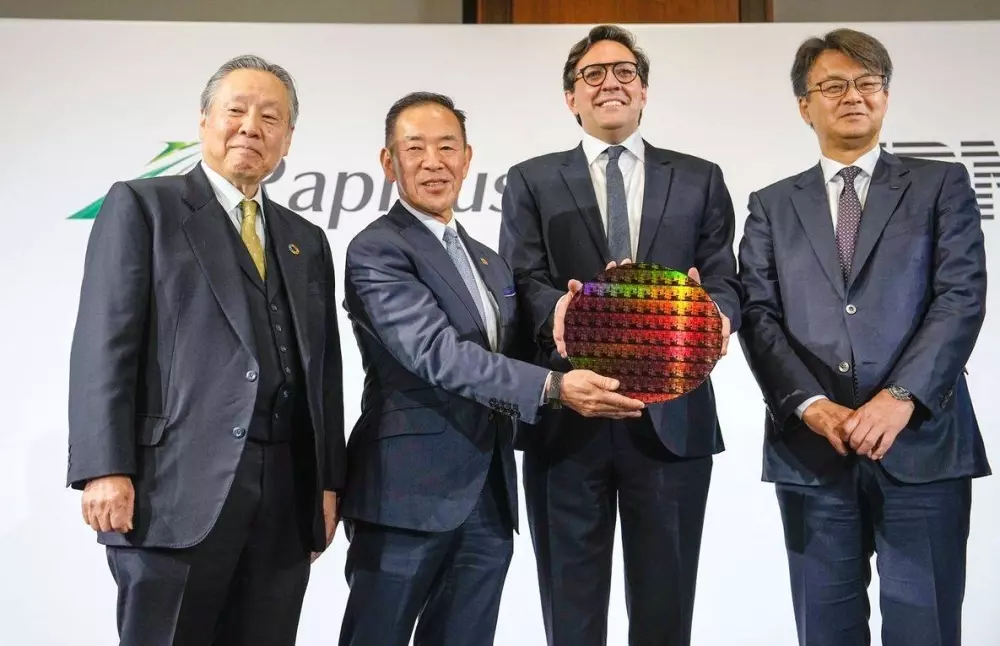Japan’s attempt to once again become a major player in the international semiconductor industry took another step forward in Hokkaido on last Friday with a groundbreaking ceremony for a factory to be occupied by Rapidus, a government-backed firm that will produce state-of-the-art chips for next-generation industries.

Rapidus aims to position itself as a prominent worldwide supplier of cutting-edge 2-nanometer-wide semiconductors for 5G communications, quantum computing, self-driving vehicles and digital smart cities.
But despite government backing, questions remain over whether the firm can recruit the highly skilled workers needed to quickly compete with overseas competitors who are also pursuing production of 2-nanometer semiconductors.

Atsuyoshi Koike (second from left), president of Rapidus, and IBM Senior Vice President Dario Gil (second from right)
At the groundbreaking ceremony at the factory site in Chitose, not far from New Chitose Airport, industry minister Yasutoshi Nishimura, whose ministry is heavily backing the project, and Rapidus officials all sounded upbeat about the future.
The construction of the new factory “is a once-in-a-lifetime opportunity,” Rapidus CEO Atsuyoshi Koike told a news conference.
He added that the hiring of employees has been going well, with the firm already securing more than 200 workers.
Nishimura stressed that the government "will continue to fully support" the Rapidus project.
Rapidus, which is also backed by eight major Japanese firms, including Toyota and the Sony Group, has received ¥330 billion in government support so far, and more is likely to come.
The plans call for construction at Chitose to be completed over the next couple of years, and the trial production of chips to begin by March 2025. The company aims to start full-scale production in 2027.
Initially, 100 people are expected to work at the plant, increasing to about 1,000 by 2027.
Rapidus was set up to research, develop, design, manufacture and sell the 2-nanometer semiconductor chips in partnership with IBM, which developed the first 2-nanometer chips in 2021. IBM projects that the chips will perform 45% better than the 7-nanometer chips currently in wide use, and will be 75% more energy efficient.

2nm An IBM researcher holds a wafer containing chips with 2 nm technology
For the Japanese and U.S. governments, the Rapidus project is a symbol of what both sides hope will be further cooperation. In January, Nishimura told an audience in Washington that joint cooperation between Rapidus and IBM was symbolic of bilateral semiconductor cooperation that should be further expanded to fields such as biotechnology, quantum science and technology, and artificial intelligence.
For Hokkaido, the factory, into which Rapidus says it will pour ¥5 trillion, is being touted by Gov. Naomichi Suzuki as the prefecture’s largest investment ever. Rapidus, he says, chose Hokkaido for three reasons: It has an ample supply of clean water needed during the chip production process, nearby universities that can train needed researchers, and Hokkaido's strong commitment to renewable energy sources, especially wind and solar power, to provide the plant with sufficient clean energy.
But Rapidus faces tough questions about the project’s viability. The firm was only founded in August last year, so it remains to be seen whether it can compete with the likes of Taiwan Semiconductor Manufacturing Co. (TSMC)., the world’s largest maker of semiconductors, Samsung and Intel. Rapidus plans to send its engineers to IBM as well as the Interuniversity Microelectronics Center, a Belgian research and development organization, as part of an agreement to collaborate with the center on research development related to the 2 nanometer chips.
Meanwhile TSMC has plans to mass produce its 2-nanometer technology by 2025, two years before full production at Rapidus.
A second question involves whether the company can raise the ¥5 trillion needed, and where it will come from. The government is partially backing the project, but Rapidus has not revealed its specific financing plans for the entire amount.
▼▼▼
Read more latest news about the PCB and semiconductor industry here
+86 191 9627 2716
+86 181 7379 0595
8:30 a.m. to 5:30 p.m., Monday to Friday
